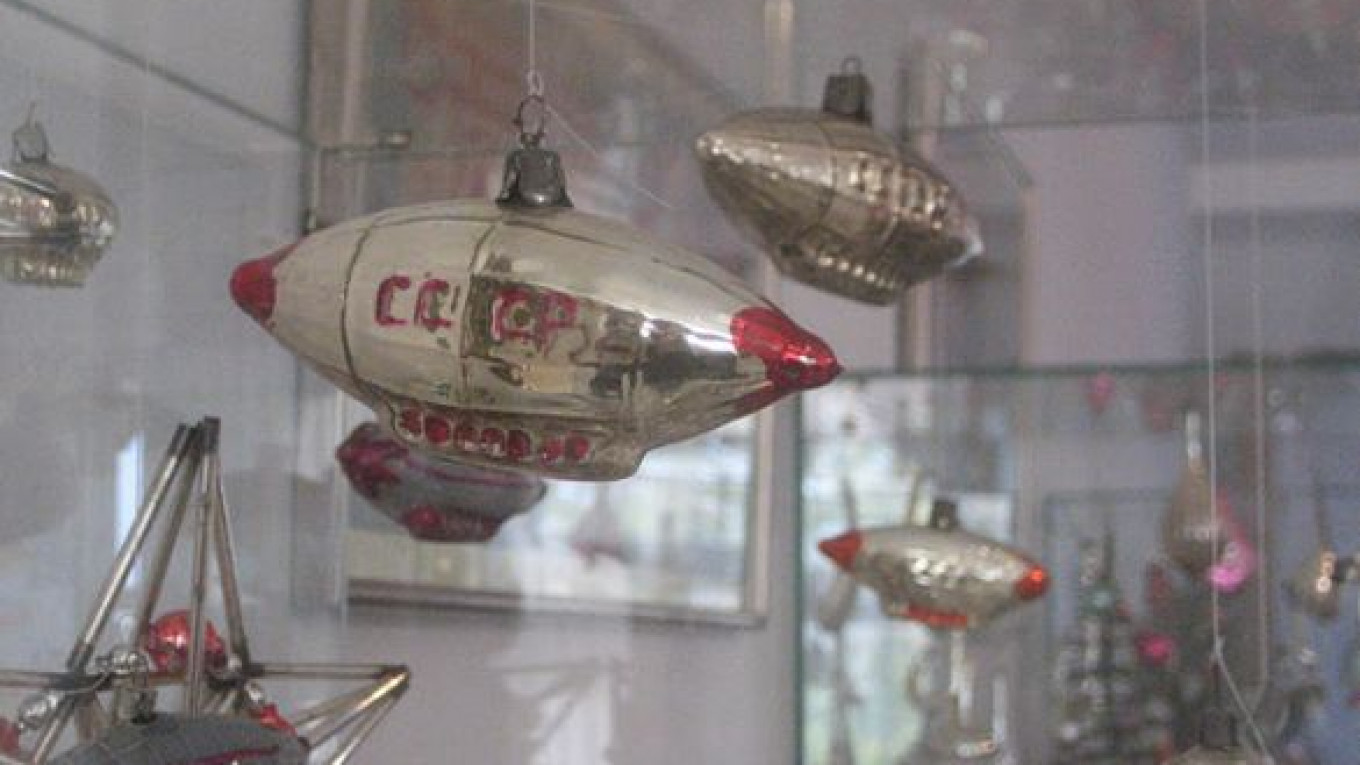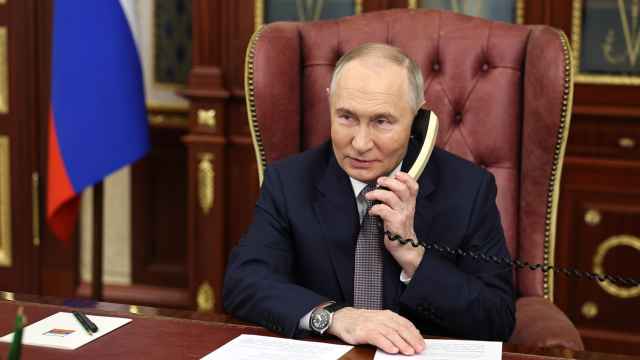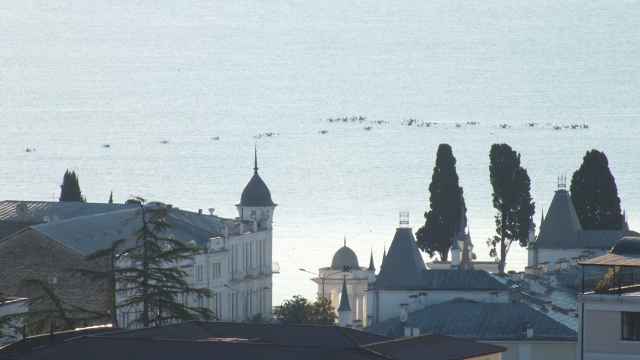KLIN, Moscow Region — It feels a bit like Christmas all year round in this cheerful town just two hours northeast of Moscow.
Whether it's 25 degrees Celsius in June or minus 25 in February, Ded Moroz waits with open arms for visitors at the majestically merry Museum of Tree Decorations.
"We are loved by all — from small children to businessmen," a woman sporting a towering platinum beehive hairdo and dangerously high-heeled shoes informed visitors entering the museum on a visit. "Everybody loves Ded Moroz!"
The sprawling museum commands full attention — it's green-gabled roof and red-brick walls cast a spirited spell over the entire town of about 80,000 some 90 kilometers from the capital.
The feeling of the holiday season must be in the water. Klin is where Pyotr Tchaikovsky penned the "Nutcracker Suite" at a nearby wooden mansion — also a museum — where the famed composer spent his final years.
The rooms of the Christmas decorations museum are dedicated to the history of tree ornaments and how the holiday has been celebrated dating back to the days of the Tsar.
The Christmas tree has its origins in Germany, but soon spread east. In Soviet times, when religious holidays were frowned upon, much of the tradition surrounding the Christmas tree carried over to the New Year's holiday, where it remains to this day in Russia.
Originally, pieces of fruit served as decorations, the museum's tour guide explained during a tour.
"They used to put apples in the branches," she said. "Later the apples became glass — red glass balls instead."
Production of the original decorations was painstaking.
"The original ornaments were blown glass and woven cloth, which were not easy or quick to produce," the guide said.
Later, stamped tin ornaments emerged, but blown glass remained a staple. Still, decorations changed with the times.
"Ornaments reflected their time," the guide said. "In the 1950s, the cosmos were the rage and toys representing Belka and Strelka and Sputnik were made."
The museum opened just four years ago on the grounds of a decades-old factory producing New Year's decorations. The factory still functions, and nestled within the heart of the museum is a small workshop where artisans continue to blow glass and hand-paint ornaments.
Towards the end of the tour, children and their parents can join in the merrymaking and hand paint their own ornamental balls.
The highlight, of course, is saved for last. In the museum's final hall stands a massive 10-meter-tall tree where visitors are greeted by none other than Ded Moroz himself.
"Ded Moroz wishes you all health and success," he said before leading everyone in a rendition of "V Lesu Rodilas Yolochka," or "A Fir Tree Was Born in the Forest," one of the most popular Russian New Year songs.
The museum is located at 4 Ulitsa Staroyamskaya in Klin in the Moscow Region and is open from 9 a.m. to 5 p.m. everyday. It is closed on Mondays for most of the year except from October through January, when it is open seven days a week.
For more information, call +7 (496)-242-4034 or go to .
A Message from The Moscow Times:
Dear readers,
We are facing unprecedented challenges. Russia's Prosecutor General's Office has designated The Moscow Times as an "undesirable" organization, criminalizing our work and putting our staff at risk of prosecution. This follows our earlier unjust labeling as a "foreign agent."
These actions are direct attempts to silence independent journalism in Russia. The authorities claim our work "discredits the decisions of the Russian leadership." We see things differently: we strive to provide accurate, unbiased reporting on Russia.
We, the journalists of The Moscow Times, refuse to be silenced. But to continue our work, we need your help.
Your support, no matter how small, makes a world of difference. If you can, please support us monthly starting from just $2. It's quick to set up, and every contribution makes a significant impact.
By supporting The Moscow Times, you're defending open, independent journalism in the face of repression. Thank you for standing with us.
Remind me later.






